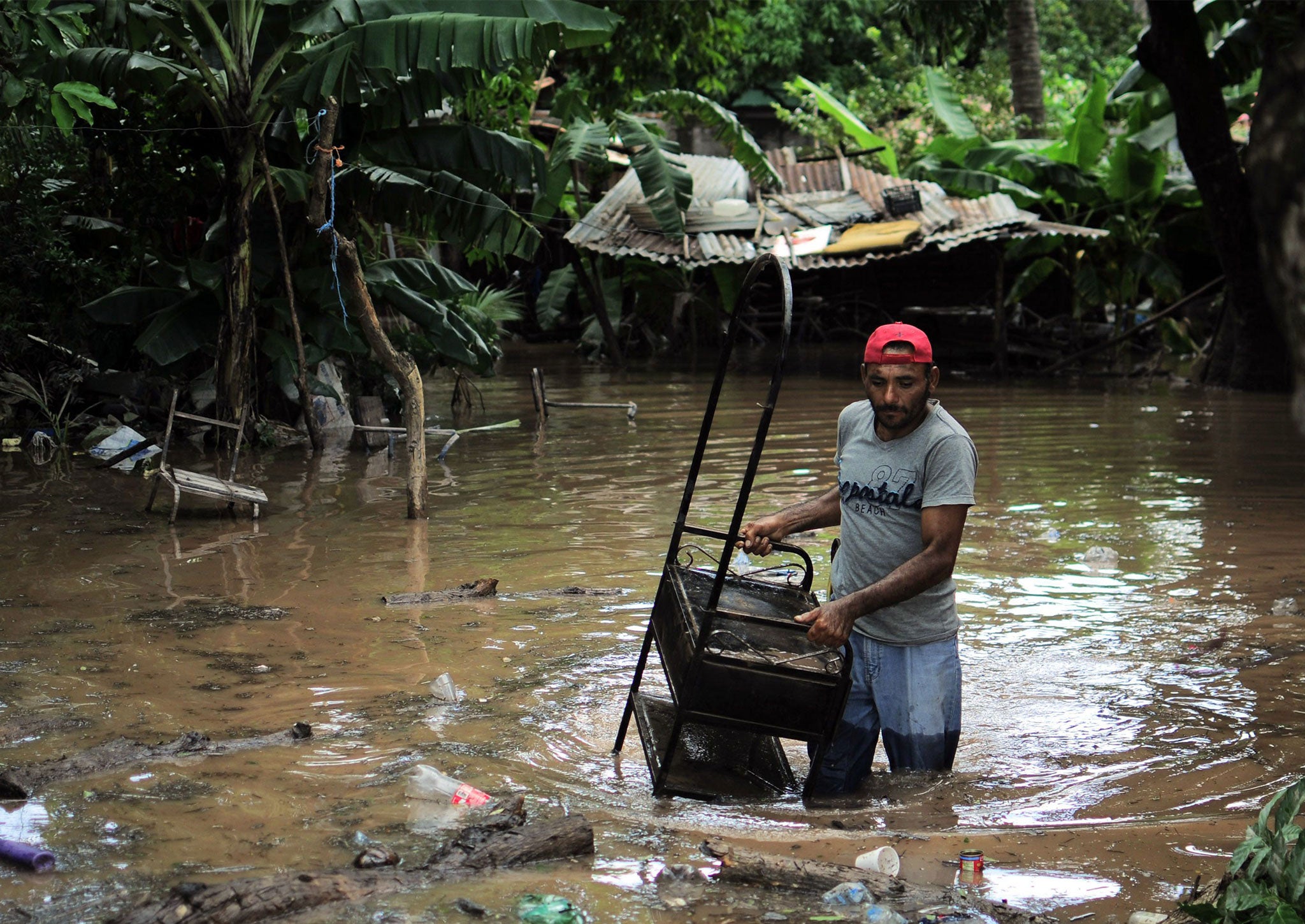Still not sure about the devastating effects of climate change? Then let me tell you what's happening in Honduras right now
Newly extreme weather conditions are making it even harder for the country to feed itself

Your support helps us to tell the story
From reproductive rights to climate change to Big Tech, The Independent is on the ground when the story is developing. Whether it's investigating the financials of Elon Musk's pro-Trump PAC or producing our latest documentary, 'The A Word', which shines a light on the American women fighting for reproductive rights, we know how important it is to parse out the facts from the messaging.
At such a critical moment in US history, we need reporters on the ground. Your donation allows us to keep sending journalists to speak to both sides of the story.
The Independent is trusted by Americans across the entire political spectrum. And unlike many other quality news outlets, we choose not to lock Americans out of our reporting and analysis with paywalls. We believe quality journalism should be available to everyone, paid for by those who can afford it.
Your support makes all the difference.Two weeks ago, the Intergovernmental Panel on Climate Change (IPCC) issued a final warning over climate change declaring that fossil fuel use must stop completely by 2100 to avoid catastrophic damage to the environment. But in some countries, the effects of climate change are already evident, and they may have as little as one decade to stop it.
Central America’s position between the Atlantic and Pacific Oceans leaves it especially at risk from the extreme weather conditions caused by climate change, and Honduras is already suffering from its effects.
Vismar Ordonez, regional coordinator for the charity Red COMAL, has told me that since Hurricane Mitch crippled the country in October 1998, the wet and dry seasons have become less predictable and more extreme, with heavy rains often followed by severe droughts. This has become especially pronounced in the last three years.
For a population that is largely reliant on agriculture, where over 65 per cent of the country lives below the poverty line, these changes are felt keenly and food security is becoming a serious problem.
Heavy rains in winter are also badly affecting harvests, which has led to increasing malnutrition and poverty in certain areas. Maize and beans are two of the most common crops grown in Honduras and a bad harvest is devastating for much of the country’s rural population, with many struggling to provide for their families.
This summer, an intense drought saw harvests drop by 80 per cent in some parts of Central America and the price of maize and beans rise by 40 per cent, forcing the government to declare a state of emergency. Droughts are not uncommon in the "dry corridor" of Central America, but they are occurring more frequently and intensifying. Due to the harshening conditions, many Hondurans have been forced to leave their homes, leading to an increase of migrants to the US.
There is still time to prevent this worst case scenario. Vismar and Red COMAL provide advice to Honduran farmers on how to adapt to climate change. If their lifestyle is to remain sustainable they need to start growing crops that need less water, such as avocados and mangoes.
The Honduran government and the international community have also invested a lot of money in helping Honduras deal with climate change, but it’s very difficult for them to have a substantial impact on a nationwide scale, and much of the money is lost on bureaucracy.
However, despite the dire predictions and the challenges in dealing with climate change, most Hondurans remain optimistic. As one farmer I speak to says “I’ll make sure my family have enough food for years to come, using whatever means necessary”.
Additional research by Jolyon Hedges
Join our commenting forum
Join thought-provoking conversations, follow other Independent readers and see their replies
Comments